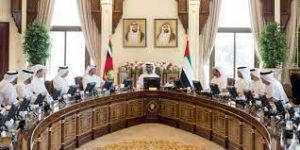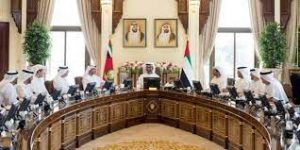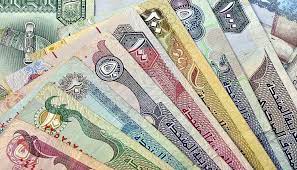An Overview Of The Abu Dhabi Vision 2030

by Ala Farahat, Farahat & Co
Background
The Abu Dhabi Vision 2030 is a set of policies and goals developed in 2006 by the Government of Abu Dhabi to start a safe and secure society with a sustainable economy. The Government’s policy agenda was published in 2007 and the Abu Dhabi Vision 2030 is considered the roadmap for the emirate’s economic progress. The United Arab Emirates relies heavily on oil to sustain its economy, which the Vision seeks to reverse by shifting its reliance on oil to make Abu Dhabi a sustainable city of international stature. The Vision aims to achieve social and economic goals through various strategies, such as building a well-planned city for habitation and commerce and preserving the environment while considering standards for the future.
The Abu Dhabi Vision 2030 offers a set of guidelines helping several Abu Dhabi-based businesses have created unique plans centered on accomplishing their objectives. There are numerous strategies for achieving the Vision’s primary objective. Still, the most important ones are the Abu Dhabi Urban Planning Vision 2030 and the Abu Dhabi Economic Vision 2030, both launched by the Abu Dhabi Council for Economic Development (introduced by Abu Dhabi Urban Planning Council). To fulfil the purpose of these strategies, both sets of visions began to be carried out in greater detail in 2008. However, the subsequent worldwide economic slump in 2008 was setback for the Vision as the price of oil fell, forcing some of the Vision’s recommended solutions to be withdrawn and the Vision to be modified.
Highlights of Abu Dhabi Economic Vision 2030

Economic diversification is common and fundamental to the Government’s other stated priority areas and the policy agenda. In its vison the Abu Dhabi government unveiled a long-term strategy for the transformation of the economy of the Emirate, which called for a gradual decrease in the Emirate’s reliance on the oil industry and a future increase in knowledge-based companies. The document, titled “Abu Dhabi Economic Vision 2030,” lists the following as the Government’s top economic goals to be achieved in the near future. In this context the government is expecting to generate higher–valued employment opportunities mainly focusing on the locals having given specific concern to the maximization of women’s participation in the workforce. To encourage entrepreneurial activities, it was the aim of the government to enhance the business environment through advanced legislative reform and to ensure that all economic policies are formulated based on extensive data sources and statistical information. The following are some of the policy decisions envisaged under the Abu Dhabi Economic Vision:
- Establishing an environment for business that is open, effective, efficient, and integrated internationally.
- Adopting a strict budgetary strategy that is responsive to business cycles.
- Creating a stable monetary and financial market environment with controllable inflation.
- Increasing the labour market’s efficiency significantly.
- Building a vital, robust infrastructure that can accommodate anticipated economic expansion.
- Creating a highly productive and trained workforce
- Enabling financial markets to assume a leading role in financing various economic ventures.
the document provides a comprehensive plan for the diversification of the Emirate’s economy and a significant increase in the non-oil sector’s contribution to the Emirate’s Gross Domestic Product (GDP) by the year 2030.
Framework and Objectives

To accomplish the objectives outlined in the Policy Agenda, the Abu Dhabi Economic Vision 2030 aims to assess the present economic climate and focus on the following critical areas for development.
- First, it is essential to look at which industries and business models are most important for economic output and expansion and which regions are seeing the fastest development rates.
- Second, to advance the economic and competitive potential of the Emirate in comparison to its current peers and global benchmarks, one should assess the current business climate and identify key strengths that can be improved and areas that might be addressed.
- Finally, The Emirate’s resources are also taken into consideration, along with the measures that must be implemented to make sure they can support future economic expansion. A growing population and increased economic activity place a significant demand on infrastructure, which includes energy, transportation, and ICT. The development and growth of the economy also depend heavily on ensuring that financial Capital may be used securely and confidently.
Nine Pillars of the Abu Dhabi Policy Agenda Vision

To build the Emirate’s social, political, and economic future, the Government has defined nine pillars:
- A large empowered private sector
- A sustainable knowledge-based economy
- An optimal , transparent regulatory environment
- The continuance of strong and diversified international connections
- Optimization of the Emirate’s resources
- High-quality education, healthcare, and infrastructure assets
- Complete international and domestic security
- Upholding Abu Dhabi’s principles, culture, and legacy
- A significant and continuous contribution to the UAE Federation.
Priority Areas of Abu Dhabi Vision 2030

After establishing these pillars, the Government has committed to directing public policy to strengthen and grow them. It entails concentrating on four important priority areas:
i. Economic Development
- Economic diversification is standard and essential to the Government’s other declared priority areas and the policy agenda. The Government wants to see more high-wage jobs created, particularly for Nationals, and more women in the workforce.
- To stimulate investment and entrepreneurial activity, the Government intends to improve the business climate via more legislative change and ensure that all economic policy is prepared concerning reliable data sources and statistical information.
- Improving the economy and business environment will also assist in better integrating Abu Dhabi into the global economy by attracting foreign and domestic investment and enabling capital export via targeted investments with international partners.
ii. Social and human resource development
According to the Policy Agenda, the primary goal and driving reason behind all policies and activities is social and human development. Therefore, ensuring residents have access to high-quality education and healthcare services is a top priority. Regarding workforce development, the Government’s goal is to provide a steady supply of high-quality labour to staff the economy, mainly to promote full employment among Nationals. At the same time, Abu Dhabi aspires to preserve ethical and safe management of its labour resources via the strict enforcement of Federal labour laws and the fulfilment of obligations made through the UAE’s ratification of international labour agreements.
iii. Infrastructure development and environmental protection sustainability
The third key area is the development of adequate infrastructure while protecting the environment. The Government will guarantee that the Emirate’s towns and cities have a professionally planned and well-managed urban environment, replete with world-class traffic and transportation infrastructure. To achieve an Emirate-wide distribution of economic activity and accompanying advantages, the simultaneous development of the Regions to keep pace with that of the Capital is also a significant policy objective. The Government, for its part, will guarantee that Abu Dhabi’s security is maintained and that its towns and cities remain secure places to live and work.
iv. Optimization of government operations.
Finally, the Policy Agenda outlines principles for optimizing the Government’s involvement in the Emirate’s future by enhancing the efficiency and accountability of government ministries. The Government has already begun an exhaustive assessment of its procedures and structures. Many services are being supplied online via e-government programs, while departments are being simplified and non-core activities are being outsourced to the private sector. These initiatives will continue to grow. To achieve maximum efficiency, the Government will simultaneously review and enhance the legislative framework and the legislative processes.
Taskforce for the Abu Dhabi Economic Vision 2030

Several public sectors and public-private partnership organizations worked cooperatively to create the Abu Dhabi Economic Vision 2030. Three entities have been crucial to the growth of this Vision:
- The Department of Planning and Economy
- The Abu Dhabi Council for Economic Development (ADCED)
- The General Secretariat of the Executive Council.
Takeaway

A secure and stable future for the residents of Abu Dhabi is the goal of the economic Vision outlined in this text. The ultimate aim is to create a society self-assured in its expanding role as a global financial hub and demonstrates its capacity to change to meet future demands. Abu Dhabi is currently well-positioned to advance its economic and social goals due to the arduous labour of earlier generations. Due to wise decision-making and continued efforts by the Emirate’s citizens, Abu Dhabi will be even more prosperous by 2030.
For detailed information about Abu Dhabi Vision 2030, please contact Dezan Shira & Associates at dubai@dezshira.com
About Us
Middle East Briefing is one of five regional publications under the Asia Briefing brand. It is supported by Dezan Shira & Associates, a pan-Asia, multi-disciplinary professional services firm that assists foreign investors throughout Asia, including through offices in Dubai (UAE). Dezan Shira & Associates also maintains offices or has alliance partners assisting foreign investors in China (including the Hong Kong SAR), Indonesia, Singapore, Malaysia, Mongolia, Japan, South Korea, Nepal, The Philippines, Sri Lanka, Thailand, Italy, Germany, Bangladesh, Australia, United States, and United Kingdom and Ireland.
For a complimentary subscription to Middle East Briefing’s content products, please click here. For support with establishing a business in the Middle East or for assistance in analyzing and entering markets elsewhere in Asia, please contact us at dubai@dezshira.com or visit us at www.dezshira.com.








